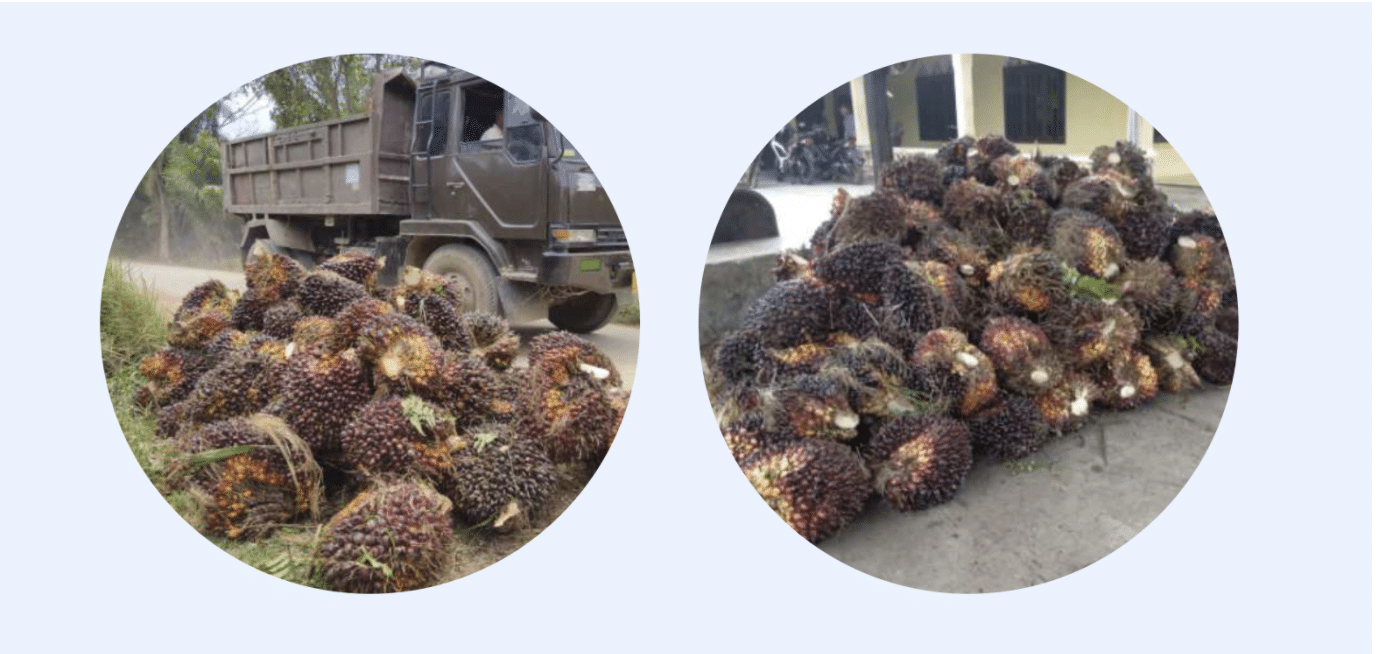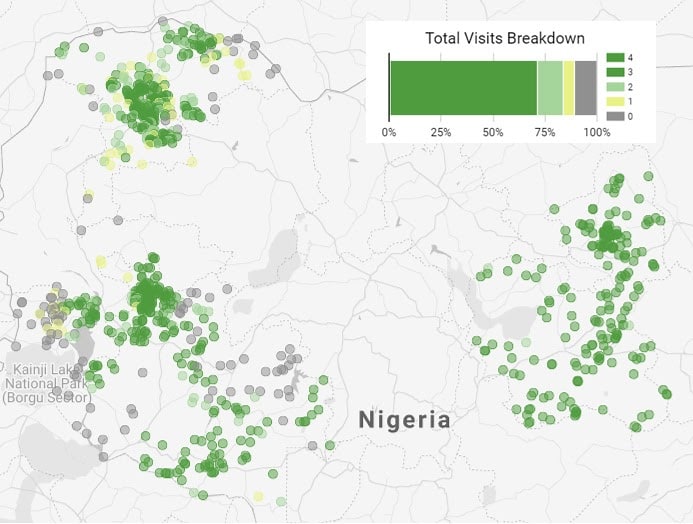In the summer of 2021, Germany became the latest country to pass legislation that places environmental, social, and governance (ESG) considerations at the heart of corporate decision-making.
The Supply Chain Act, as it’s commonly known, will require large companies with operations in Germany to take meaningful steps to audit their global supply chains for potential human rights abuses and environmental damage; to report on those efforts and any relevant findings; and, if necessary, to take steps to end those abuses.
If having to answer for every shady practice in a complex supply chain worries you, you’re not alone. Many companies lack visibility into how, where, when, and with whom their suppliers procure the goods they sell up the chain. In the past, a company might have elected to keep things that way. In the near future, they won’t have that luxury.
Maintaining access to facts on the ground along the entire supply chain will be critical to staying compliant with these regulations. Luckily, a new generation of supply chain monitoring provides just that.

Premise specializes in sourcing actionable data from the hard-to-reach locations where conventional supply chain oversight often goes dark. Where other methods of information gathering falter, Premise’s crowdsourced insights are up-close and intelligent, mobilizing smartphone users who live and work within your area of interest to provide quantitative and qualitative data.
With ground-truth data from anywhere in near-real-time, you’ll be able to stay current on places that, even a few years ago, would have been inaccessible without a costly plane ticket.
Here’s how your new access to facts on the ground can factor into your supply chain due diligence strategy — and why you need to start building that strategy today.
Read more: Premise CRO Ted Pardee on how crowdsourced insights make supply chains more competitive. Link
What the Supply Chain Act means for you
The Act on Corporate Due Diligence Obligations in Supply Chains (English text here) will take effect on January 1, 2023. For its first year, the law will apply to companies that have more than 3,000 employees in Germany. Starting January 1, 2021, the threshold will lower to 1,000 employees.
Companies will be required to “exercise due regard” for human rights and environmental health in their supply chains, including their suppliers and indirect suppliers. This obligation is divided into two categories: prevention and remedial action.
To prevent supply chain abuses, companies will have to establish risk management systems, perform regular risk analyses, issue a policy statement on their strategy, and more. When human rights or environmental abuse is detected in their supply chain, the company is required to take reasonable steps to “prevent, end, or minimise the extent of this violation.”
Companies that know about violations and fail to take action will be subject to fines of up to 2% of their global annual revenue. (More details about the law here.)
Proponents of the act hail it as the most ambitious supply chain legislation in Europe, exceeding the standards set by France’s 2017 Duty of Care Act and the UK’s 2015 Modern Slavery Act. But the movement to use regulation to push ESG initiatives is only heating up; the European Union will likely bring a new law into effect as early as 2022 that will go even further than Germany’s law. The US already has a patchwork of state and federal regulations that point in a similar direction.
In general, many companies that never wanted to take a close look at their supply chains will be forced to start doing so. Whether taking a peek under the rock will yield positive results remains to be seen. For now, what’s essential is to implement a strategy for monitoring activities in faraway places.
Here’s how Premise can help.
On the ground, around the world
Premise is a crowdsourced insights company that mobilizes more than 3.5 million smartphone users in 125 countries to source data in near-real time. Our Contributors are everyday people who earn cash by completing simple tasks and surveys on the Premise mobile app. Wherever it is that you have a question about conditions on the ground, population sentiment, geolocation — anything — Premise enlists local Contributors to provide answers you can trust, right away.
Over the past few years, supply chain due diligence has been an increasingly popular use case for Premise’s insight-gathering capabilities. We have helped dozens of companies begin to address not only first-mile concerns within supply chains, but also retail supply chain issues: questions as simple as which stock is on display in retail markets where the parent company has little visibility.
Information gathered from Premise Contributors is human, fast, and on-the-spot, providing much more flexibility in the types of answers you are able to obtain. All responses go through a rigorous, AI-assisted quality assurance process, which means you can trust the answers you get.
Need a photo taken of a particular worksite? Premise can put the call out to Contributors who live nearby. Want to understand local sentiment towards a particular company or employer? Contributors in the area, whether it’s a city or a country, can earn money by completing a survey we deploy instantly on our app. It’s win-win-win, and when it helps protect workers and the planet, it’s even better.
Some of the first-mile supply chain monitoring services we have provided include:
Photos of hard-to-access operations
When a multinational consumer goods company needed visibility into how their suppliers were harvesting palm fruit in Indonesia, Premise enlisted Contributors to capture photos of the fruit harvests and map how they got to the processing plant.

The client gained insights into the first leg of their palm oil supply chain, which helped them adjust their assumptions around the commodity’s price and the complexity of its infrastructure.
Read the full story of how Premise revealed the first mile of a producer’s palm fruit operation. Link
Geospatial data
Premise Contributors submit location and demographic data, which we rigorously anonymize to protect privacy. This information helps provide critical context to every photo, task, and survey.
For companies in the dark on where their upstream supply chain partners are even located, Premise geospatial data provides the answer. We have been able to plot cell signal strength into heat maps, put coordinates to buildings, and even map rural settlements in Nigeria, seen below. (Link)

All the settlements identified by Premise contributors in the Nigerian states of Bauchi, Niger and Sokoto.
Labor conditions
In order to identify instances of forced labor in the production of cocoa beans, a large food producer asked Premise to help them track labor conditions in a particular region of West Africa. Local Contributors provided insights that contributed to the firm’s decision-making and influenced their relationships with suppliers in the area.
Material conditions
When Mount Nyiragongo erupted in the Democratic Republic of the Congo in May 2021, more than 30,000 lives in the city of Goma were suddenly thrown into chaos. International aid groups were not clear on exactly what was needed, where. Premise launched a survey in the affected area and quickly sourced information that guided the humanitarian effort.
Read the full story of Mount Nyiragongo. Link
Sentiment analysis
When the World Health Organization approved the vaccine RTS for use in areas of high malaria transmission, Premise sourced detailed data on how Contributors in sub-Saharan Africa felt about their risk of contracting the disease, the safety of the vaccine, and other preventative measures they were taking.
Read more about malaria sentiment in sub-Saharan Africa. Link
The first step to first mile due diligence
With ESG regulations forcing companies to embrace a new level of accountability for their supply chains, a lot of businesses around the world are going to find themselves navigating an unfamiliar market for global insights. That’s why we’re here to make it easy.
Premise connects you to facts and opinions from everywhere in the world in one simple platform. Where insights used to be hard to get, Premise makes them accessible and up-to-date. In our new age of connectivity, Premise is the new face of crowdsourced insights.
Don’t wait for these regulations to impact your company. Begin building a plan for your supply chain due diligence today, and make sure you have the right data for all your ESG decisions.